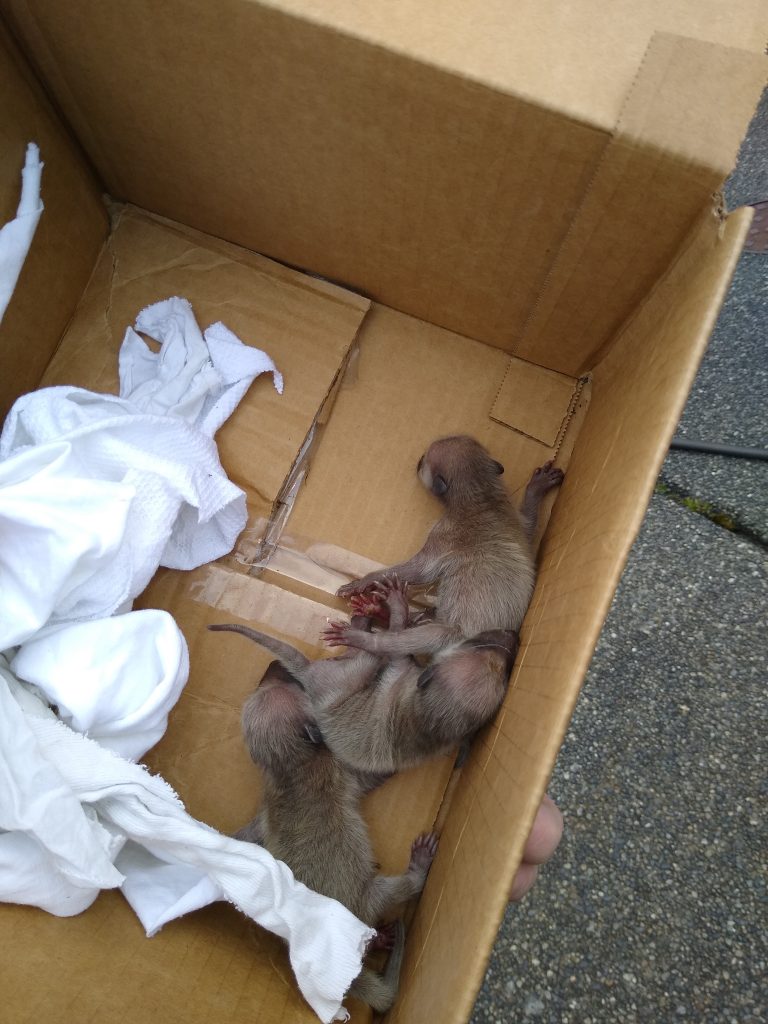GET RID OF RACCOONS ONCE AND FOR ALL
Services
Service Areas
DON'T LET RACCOONS RUIN YOUR PROPERTY
SCHEDULE EFFECTIVE PEST CONTROL SERVICES IN WASHINGTON
There isn’t a raccoon problem that we can’t fix — which is a good job as there are a lot of problems associated with nuisance raccoons. Our friendly and trained technicians service residential and commercial properties in the local area, offering a service that is fast, effective, and cost-effective, while at the same time being humane for the nuisance wildlife and safe for other pets or animals.
Raccoon removal plus — the services we offer
We can find and removal live or dead raccoons, find raccoons that have gotten lost somewhere in your home or building, keep raccoons out of the backyard, deal with aggressive raccoons, stop raccoons digging up your lawn (and even restore the lawn), put preventive measures in place to protect fish ponds from raccoon attacks, get raccoons out that are living under your home or building or in your attic, and even repair specialist damage caused by raccoons. This can include replacing attic insulation, repairing attic lining, or replacing broken roof shingles or tile, as well as many other examples.
One of the biggest issues that come with raccoon control and removal is the proximity the trapper or capturer must come to an animal that could potentially be infected with the rabies virus. This is easily passed along to unvaccinated cats, dogs, and other pets or animals, and can even prove deadly to humans if they are bitten and treatment is not received before symptoms start to spring up.
We have the right tools, equipment, and techniques to perform raccoon removal from residential houses, commercial buildings, under or around sheds and garages, under the porch or decking, and more, without harming the animal or creating further risk to you and the property. In addition to that, it’s crucial to use humane techniques to remove raccoons. Here is a great source to learn more about it at humaneraccoonremoval.org. We can go further than that, too, going on to completely decontaminate and sanitize areas that were previously affected. With raccoons, latrines are a big problem — but we can get rid of latrines, nests, dead raccoons, baby raccoons, and much more.
Even a grown, adult raccoon can gain access to a building or home without alerting anyone, and carry on living within the building for a while without being detected. For the entire time they’re living away, unbeknownst to you, they will be creating damage of some form — waste, chewing, scratching, general scuffling and bumping around, leaving food crumbs around to rot and attract flies or rats/mice, and more.
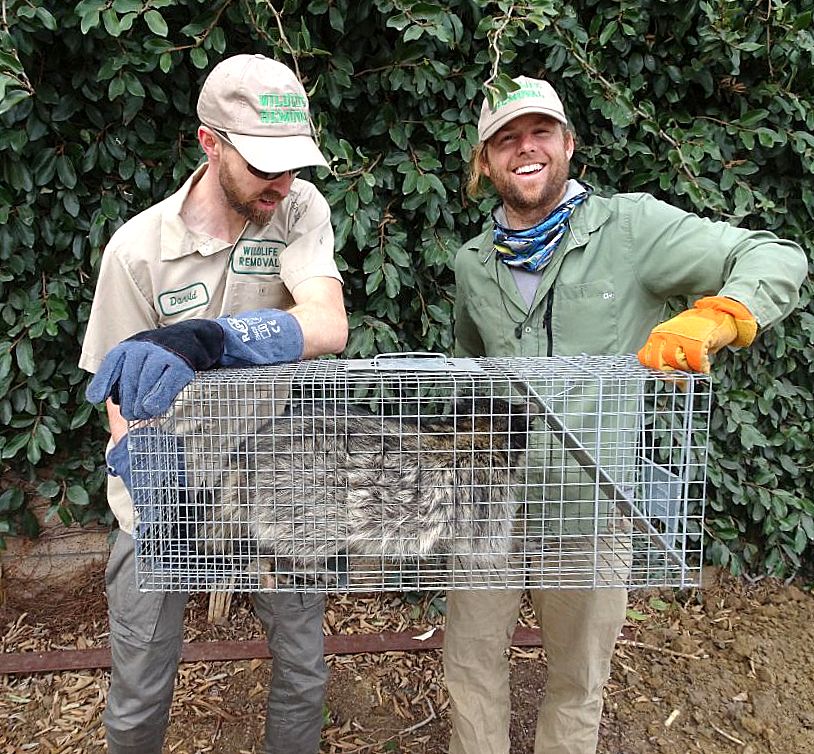
OUR PERMANENT RACCOON REMOVAL SERVICES
Raccoons are very prevalent in the everyday lives of millions of Americans. As they have become very well adapted to urban environments, raccoons have been happy to live inside of attics, garages, and other structures that people own. However, due to the wide variety of problems they cause, it is wise to remove raccoons as soon as possible. Continue reading to learn more about raccoons and how you can remove them.
Why Should I Remove Raccoons?
While many people often associate raccoons with the property damage and general mess-making they cause, it is utterly important to realize the health risks that come with raccoons. From rabies to many other dangerous diseases, raccoons can cause serious, potentially fatal health issues for you, your family, and your pets. As can be seen, it is very important to remove these critters from your property as quickly as possible, as they can cause serious health risks. Since these diseases are so dangerous, it is very important to realize that they can be spread in multiple ways. The most common way diseases are spread is through raccoon feces. Another way, though rare, is through the scratching or biting of a human or pet by a raccoon. Since there is plenty of danger with raccoons, be sure to permanently get rid of them as soon as possible.
How Can I Prevent Raccoons?
Raccoon prevention is actually easier than most people are led to believe. To reduce a raccoon’s likelihood of coming onto your property, the best thing to do is remove any and all easy food sources and shelter areas. Securing your garbage and any pet food will go a long way in preventing raccoons. Be sure to pick up any fallen fruit from fruit trees. Finally, be sure to clean up your yard very neatly. Be sure to get rid of woodpiles, tall grass and weedy areas, and any other buildup of potential hiding spots for animals. When it comes to preventing raccoons from entering your home, be sure to examine your home from top to bottom and seal up any gaps, cracks, or holes that could potentially allow access for nuisance animals.
How Do I Remove Raccoons?
Removing raccoons by yourself might seem like a simple enough task. It might be surprising, but it can actually present a slew of problems. The biggest problem when removing raccoons is actually due to mother raccoons. More often than not, a raccoon in your attic is generally a mother raccoon that found a great, warm place to have her young. When you remove the mother, the baby raccoons will die slow, painful deaths and will create terrible odors in your home. This is where hiring a wildlife removal company comes into play, as they will search your attic and remove any baby raccoons as well. In addition to providing humane, safe removal for the mother and baby raccoons, pest removal services also know how to prevent any future infestations from occurring.
Why Hire Washington Wildlife Removal?
If you are looking for a nuisance wildlife removal company that can permanently remove raccoons from your property, give us a call at Washington Wildlife Removal. Not only do we care very much about our clients, but we also provide humane, ethical treatment to any and all raccoons removed. Give Washington Wildlife Removal a call today if you are dealing with a raccoon problem.
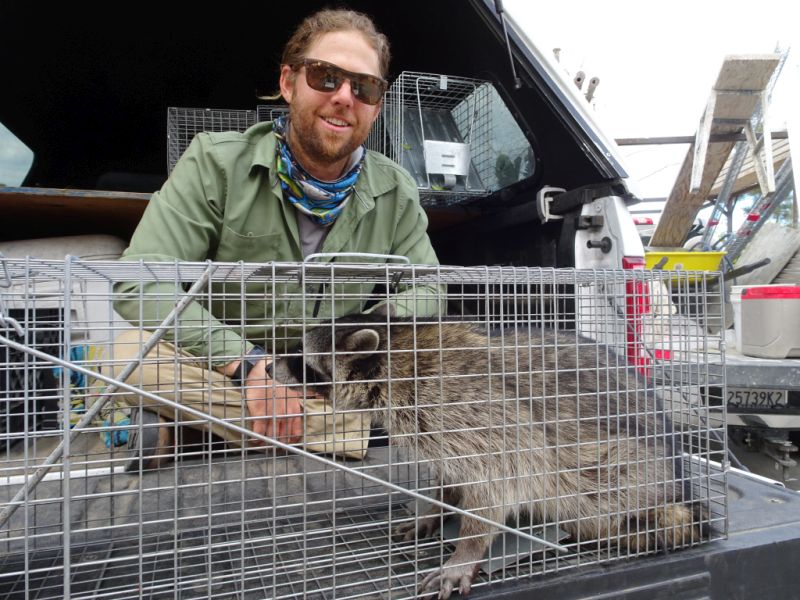
The Damage Caused By Raccoons
Raccoons look cute and cuddly, but these animals can be a major issue for homeowners. Especially if a raccoon makes its nest within or outside your property, you need to be made aware of the damage these animals can cause.
You might be wondering what a raccoon can do? How bad could it really be? In truth, raccoons can potentially cause thousands of dollars worth of property damage. So, we recommend that you read through this post. This way you fully understand the kind of damage this animal can do.
What Kind of Damage Do Raccoons Cause?
Raccoons can create a range of issues for your home. Outside your property, this might include digging up your garden, destroying your yard, and destroying trash bins. This is considered minor damage. But it is annoying and time-consuming to clean up this mess.
However, once this animal makes its way inside the damage becomes much worse. To prevent these damages learn more about urbanraccoontrapping.com. Raccoons are known to destroy the very structure of your home. They will tear apart insulation all over your property. Your attic will likely receive the worst of this damage. And the loss of insulation could up your power bill.
In addition, ventilation and other heating and cooling systems can also be damaged by raccoons. Further adding to this damage, raccoons will urinate and poop in your home. Not only will this smell terrible, but it will cause bugs and parasites to enter your home. In the long run, this could cause major health issues.
Finally, a raccoon could end up tearing up walls, furniture, and other fixtures in your home. No one wants to deal with this type of damage, as it can end up costing a lot of money. So, we will briefly talk about how you can prevent raccoons from coming onto your property in the next section of this post.
How Can You Prevent Raccoon Damage?
Preventative measures will be the most effective way to ward off raccoons and any resulting damage. This includes keeping your trash in secure bins, putting away food that you leave outside, and putting up a fence around your gardens and home.
There is only so much you can do to prevent raccoons from entering your property, but these measures should be effective.
How Can You Get Rid of Raccoons?
If a raccoon is already on your property though, you will have to remove them. You could use sprays or loud noises to scare off a raccoon and get them away from your property.
But oftentimes, trapping and relocating raccoons is the best option. This could be tricky and dangerous though. Raccoons harbor diseases and they can also get aggressive when you try to take them out of their territory.
In addition, you might not have the right permits and experience to do this. We recommend talking to a wildlife professional to deal with your raccoon issue.
Contact US Wildlife Removal
Raccoon damage can become quite extensive, especially if you need to get a group of raccoons off your property. Even a single raccoon can be a huge hassle and could potentially create issues for your home. So, if you are trying to get raccoons to leave your property, feel free to contact us today.
Raccoon damage is no laughing matter. In fact, the sooner you get these pests off your property, the better. US Wildlife Removal is fully equipped to help you handle this problem. Our team of qualified wildlife experts can get raccoons and other pests out of your hair. And for a reasonable price, you will be able to have peace of mind once more.
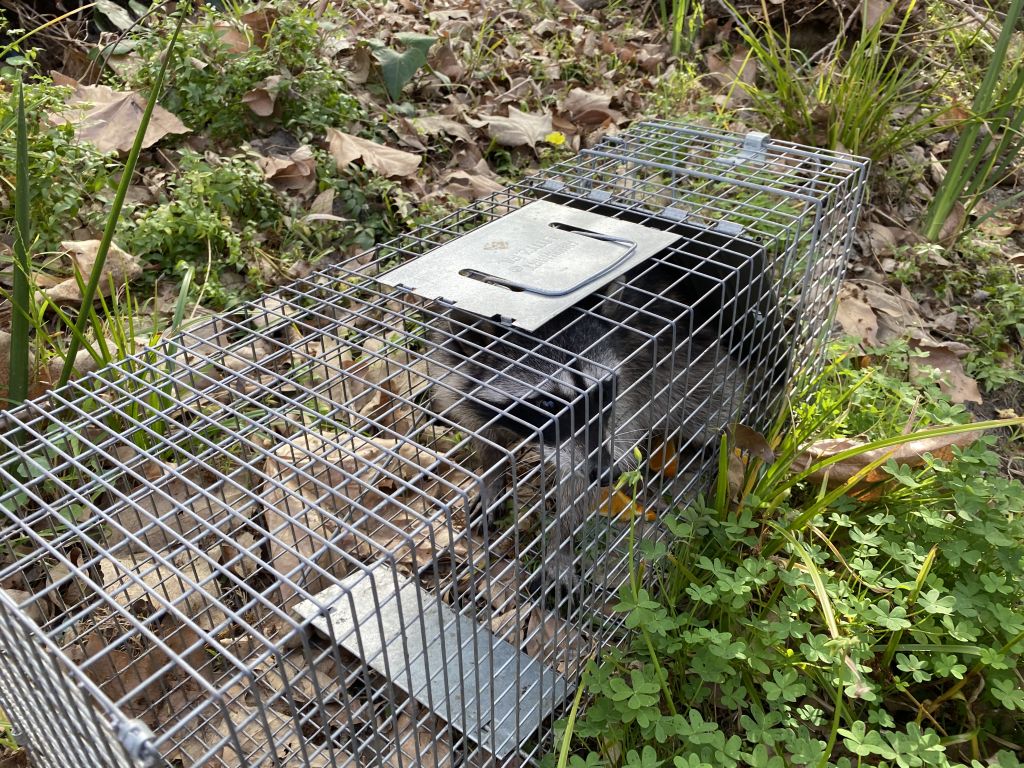
How to Keep Raccoons Out of The Roof
Raccoons are among the most famous nocturnal wanderers across the United States, visiting properties all over the country, in search of food and shelter. Which leads many property owners to wonder what to do about their budding raccoon problem, and what prevention techniques work best in safeguarding their home against these nocturnal critters.
Well, we’re here to help. At US Wildlife Removal, we’ve had plenty of experience noticing what works and what doesn’t, and that’s precisely what we’re going to be sharing with you in the lines below.
First of all, why do you want to keep raccoons away?
Raccoons should be kept away from human properties for a variety of reasons. First of all, their presence exposes you and your family to a load of diseases, some of which can even prove fatal.
Secondly, raccoons have been known to cause quite a bit of damage, since they are vicious scavengers with little regard for personal property.
Lastly, a raccoon might not pose too much of a threat to you, but they can attack your children or pets, causing harm, or infecting them with disease. So you want to get rid of them as soon as possible.
How can you keep raccoons away?
There are a bunch of things you can do to safeguard your roof (a common attraction to raccoons, since it’s easy to get to and gives access to the attic, which is less inhabited than other areas of the house).
Strong smells
Raccoons have a highly developed sense of smell, which means you’ve got a good chance of warding them off by employing the right scents. Like many other wild predators, raccoons can be repelled by the scent of ammonia-soaked dishrags. However, you will need to replace these regularly, so as not to lose their potency.
Alternatively, you might use predator urine (such as a bear or a coyote) to keep them away. Often, one whiff of predator urine, and raccoons run away. Speaking of predators, a large dog might also serve to scare off predators on your property, though unlike other wild animals, raccoons won’t be frightened by smaller pets.
Light system
Raccoons are, as we’ve established, nocturnal creatures, which means they fare well in the dark and have a deep dislike of bright lights. Now, it can be tricky to mount bright, motion-activated lights on your roof, but well worth it if you have raccoon problems. Usually, the lights will scare the raccoons off, as they increase the chances of predators detecting it.
Loud noises
Another good way to scare off raccoons (and other wild animals, for that matter) is by making loud noises. Often, clanging pots and pans together in their general vicinity will frighten the raccoons and get them to flee.
However, this can prove inefficient, since raccoons are mostly around at night, and they won’t be bashing pots and pans together at 3 in the morning, unfortunately.
Trim your trees
Let’s think for a second of how raccoons are getting to your roof in the first place. They’re most likely using overgrown tree branches to climb up and onto your roof, which is why we always recommend trimming your trees and adjacent vegetation, to make it harder for wild animals to gain access to your home.
Inspect the roof regularly
Another point of attraction consists of loose boards or shingles, cracks in the wall, and other easy access points. If the raccoon sees an opening to get inside your warm house filled with edibles, it will take it. So you want to check the roof regularly and fix any issues as soon as possible.
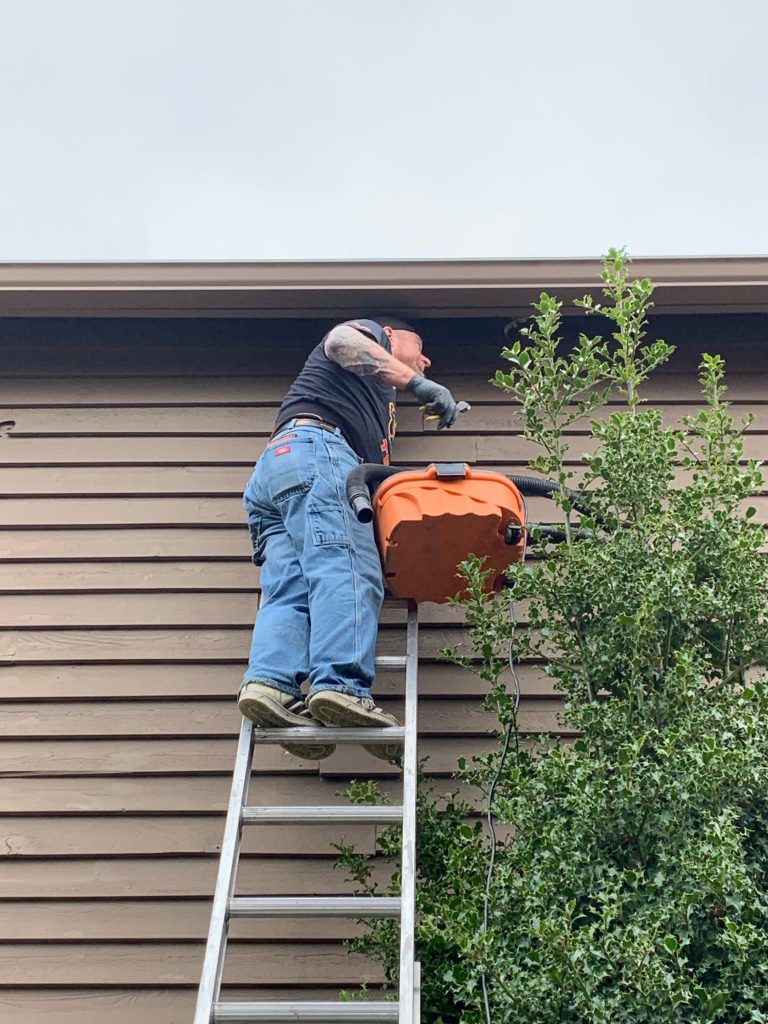
How to Remove Raccoons From The Chimney?
Raccoons can be found in both chimneys and attics. To certain animals, your chimney resembles a large, hollow tree. Raccoons are excellent climbers that want a comfortable, quiet environment to call home, so if your chimney lacks a chimney cap, be prepared for some unwanted guests! Female raccoons will naturally seek for high places to build a nest. As their natural habitats continue to shrink, the raccoons in cities will continue to grow, and they often climb on houses and other structures in search of a suitable location to establish a nest. The presence of a raccoon on the roof is not uncommon. If they come to an open chimney, it’s a fantastic site to build a den.
There are several things you can do to get raccoons out of the chimney, but there are also certain things that you should never do in this situation. For instance, never start a fire. It may seem like a good idea to frighten the animal away by starting a fire, but it doesn’t work that way. First, when you turn on the fireplace, you will need to open the damper and the scared raccoon may end up inside your living room. Also, most raccoons that find their way into the chimney are most typically females with their babies, therefore by starting a fire you may end up with roasted baby raccoons, which is a very inhuman thing for anyone to do.
Raccoons begin to look for the perfect place to start a family in fall and winter, because they give birth in the spring. It is vital that the babies remain protected and safe until they are old enough to walk. As a result, the base of a chimney is a secure and safe location. Raccoons are great climbers and can climb up and down the block with ease.
So, what do you do when a mother raccoon and her kits find their way into your chimney, here are several options for you.
Use a raccoon chimney trap
A raccoon chimney trap is designed to fit right into the chimney flue and is hidden from sight. Professionals also use this trap, but they sometimes use it with a pole and trap system, which causes the adult raccoon to move higher until it is caught. If you insist on trying it yourself, a trap at the top of the chimney may yield positive results. Just keep an eye on it to make sure the raccoon isn’t caught out in the elements, especially during the day, when overheating and dehydration are serious dangers.
Remove the raccoon babies
Also note that you will need to take extra steps to carefully remove any raccoon babies trapped inside the chimney. If the babies are left behind, their mother will continue to try to find her way back into the chimney. And if she doesn’t succeed, the young raccoons will eventually starve to death. This is not just unpleasant, but very inhumane.
Do not attempt this while the mother is still inside the chimney, as she will certainly attack. You can only remove the raccoon babies after the mother has been removed from the chimney. Most of the time, you’ll need to monitor the young and capture them either by hand or a safe trap.
Install a chimney cap
If you don’t make any adjustments, you won’t be able to keep the raccoons out of your chimney for long. The same raccoons will probably return, or new creatures will take their place. At the very least, get a chimney cap to prevent animals from intentionally or accidentally falling down the chimney.
Get professional help
This is no doubt the easiest and smartest way to get rid of any raccoon problems without causing yourself too much trouble. Here at US Wildlife Removal, we have years of experience with removing nuisance wildlife of all kinds. Our humane wildlife removal techniques have been mastered over the course of years, and we know exactly how to remove animals humanely while keeping you and your family safe.
Get In Touch
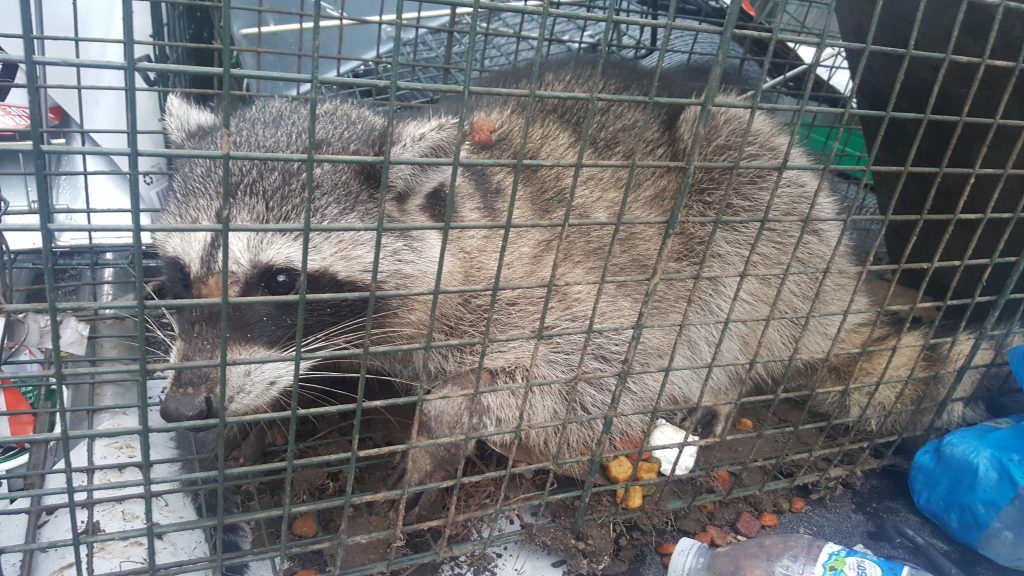

Address
3511 253rd Street Ct E, Spanaway, WA 98387-7073
Business Hours
Sun-Thu: 9:00-22:00
Fri: 8:00-14:00
Sat: Closed
seanusanimalcontrol@gmail.com
